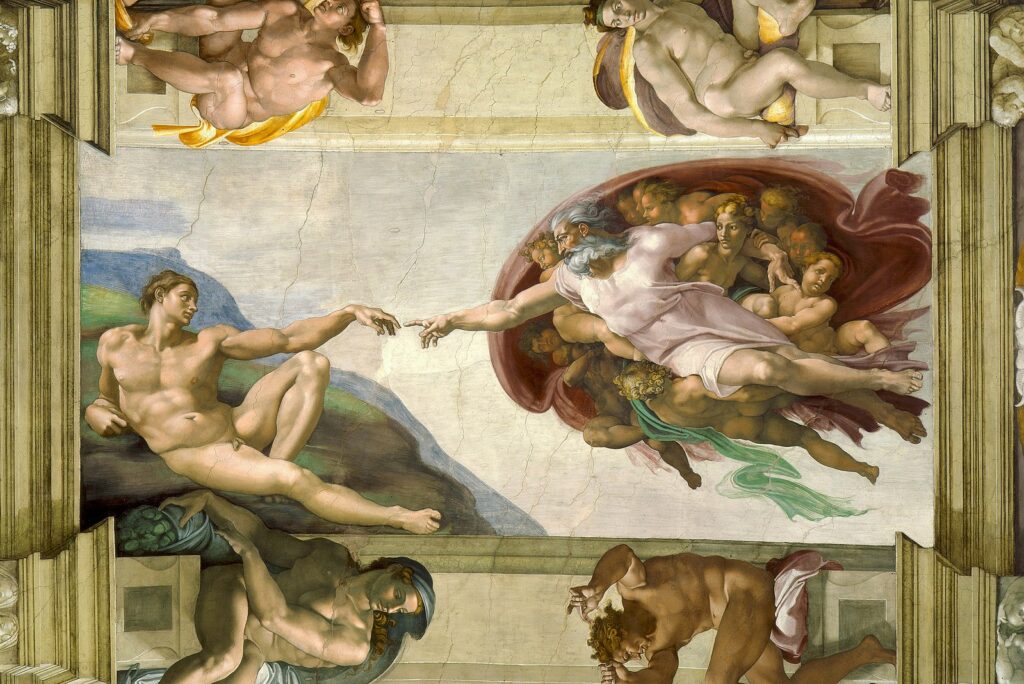
During my time at the College, a growing sense–and fear–of purposelessness has seized how students orient themselves toward campus life and future prospects. Perhaps this is a feature of the COVID crisis, perhaps it is just a sign of the times, or perhaps even this is age-old adolescent angst. Most conversations I have had with fellow students and community members agree that there is something wrong, even deeply wrong, with campus culture; however, there is never any impetus to make real changes or shift the direction of campus culture. College and the education have become completely detached from any form of human betterment. Yes, there is lots of talk about “Our Values” and building better character and making more “Social Impact”, but in my four years at the College, if any movement of character has happened upon my classmates, it’s probably a retreat, a lessening, a degradation. There has been a complete retreat of the campus from one of the foundational values of education: Virtue.
Education at its core, especially that of the Liberal Arts variety, should be about making its disciples into virtuous members of society. Beating out the adolescent, the narcissistic, the selfish tendency of the individual, and instilling real purpose, grandeur, and communal ambition into its subjects. In short, education should lift men’s heads away from gazing at the baseness around them and force them to look up into the grandeur of God’s majesty above. One must learn both sacrifice and duty, and real competence in skills, such as critical thinking and reasoning; such characteristics are crucial in the holistic moral development of students, which is desperately needed today. The virtuous citizen–a character that most students could not even identify–is the ultimate outcome for education, one that has been completely forgotten. However, simply to look up and ponder one’s role and duty to God’s creation is all but forgotten on today’s campus.
Virtue has always been accompanied by excellence, and while excellence, or mastery of a discipline, is still present on this campus, it has been stripped away from any moral component, making an impotent mockery of what it once was. Excellence without a chest, without passion or meaning beyond the self, has taken hold of the brightest on campus, and this milieu has proven to be inescapable. Now, do not mistake, this excellence is still very successful. Dartmouth students are constantly “changing the world” and making lucrative salaries right after graduation; however, there is a feeling of false stability and great wanting in this project.
The most popular majors on campus have become Computer Science and Economics because these are seen as the most “useful” majors for one’s career, but having a set, default major that students merely fall into is antithetical to a Liberal Arts education. Rather than fostering a sense of awe, they foster a sense of obedience and complacency—a set academic path which has a set secure career outcome. Once one achieves the coveted job, then what? I have personally seen the fear that awakes when students realize they have set themselves up for moving to oversized metropolises to live in small boxes in the discomfort of mass anonymity—a far cry from the passion which many students claim to have. These majors, which are greatly encouraged by all for being the most lucrative, teach you how to “work”, but not how to live.
Education also extends outside of the immediate curriculum, and most students will admit that many of their most memorable and developing moments happen far outside of the classroom. So does the socialization of the College prepare students for life? Most extracurriculars are mere resume stuffing activities that often appear prestigious but rarely contain depth. Endless investment or business or consulting clubs for every different group under the sun have as much passion in their chest as that excellence which walks around campus. But work cannot be everything, so what about the extracurriculars not on resumes? Well, we usually don’t talk about those…everyone knows they are wanton and gratuitous, but also like most extreme vices, they only devolve into lethargy and apathy, an outcome ideal for accepting what is immediately presented to them.
In all, the classes and the leisures of today’s campus slouch the average student toward oblivion. With a degradation of morals, virtue is an afterthought. But what then? Can virtue simply be reinstalled? I believe that those in the College are both in desperate need of an embrace of virtue and concrete values which mold students for more, but also completely incapable of instilling any real values in its students. Men without chests have come to rule and govern the College, and while they might be good at PR and manipulating procedural outcomes, no present Dean can insight or instruct students toward a more moral, virtuous state.
While these institutions will not support virtue, virtue still can be found, albeit in a more diminished way than should be. Through talks in the past couple of weeks that I have had in the office of The Review, in the Catholic Community Aquinas House, and even among the Dartmouth Libertarians (yes, it is that desperate that libertarians have become friends), I have found that there are those still on campus who are still interested in virtue development and instructing. Now, in truth, do I believe that this refuge amongst friends will be enough for us few students to develop into the virtuous men we wish to be? No, I do not, but I do believe that at this point, grabbing your friends and those you do care about and trying to build a better, more virtuous life is what virtue (if there is any left) would request of us.

Very well stated.